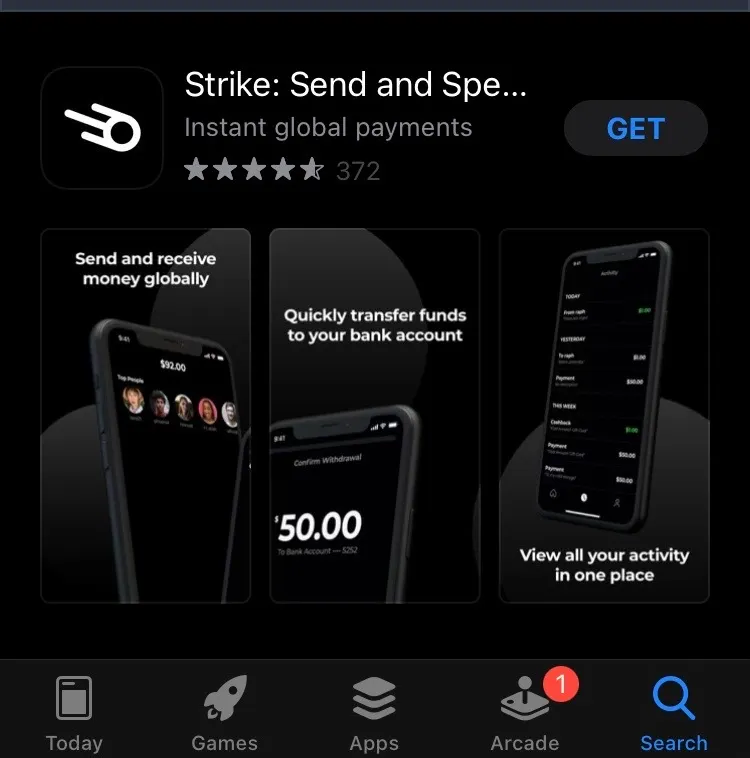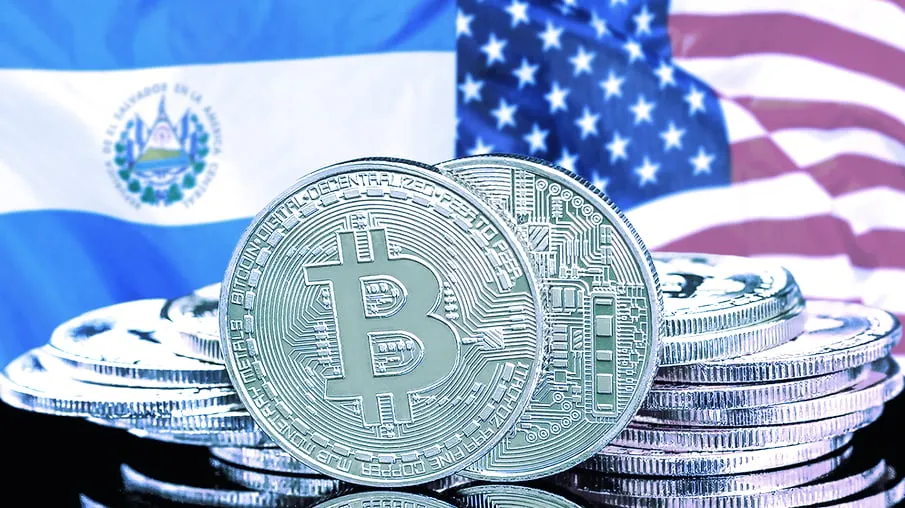The President of El Salvador, Nayib Bukele, caused a stir this month when he declared his country would become the first in the world to accept Bitcoin as legal tender. To carry out this plan, the country will rely on partners like Chicago-based Zap Solutions Inc., whose digital wallet Strike is already being used by Salvadorans in a coastal town the crypto community has dubbed Bitcoin Beach.
Strike has the technology to help El Salvador embrace Bitcoin, but one thing it appears not to have are certain licenses to operate as a money transmitter.
An investigation by Decrypt discovered that Zap lacks licenses to operate in most U.S. states. Experts suggest this means many cash and crypto transfers to El Salvador using Strike are potentially illegal—a situation that could further cloud the Central American country's already controversial Bitcoin plans.
Strike CEO Jack Mallers and others at the company did not respond to repeated requests for comment.
A new face on the Bitcoin scene
Strike CEO Jack Mallers is all in on the promise of Bitcoin.
The son of a man who founded a prominent Chicago brokerage firm and a woman who calls herself "Bitcoin Mom," Mallers is a hoodie-loving 20-something whose Twitter profile sports the laser eyes of Bitcoin believers. At a recent conference in Miami, a crypto crowd hailed Mallers as a hero for helping Bukele bring Bitcoin to El Salvador.
Mallers introduced Bukele to the Miami crowd and suggested Strike, a Venmo-like payment platform, will be integral to El Salvador's embrace of Bitcoin. The company boasts its digital wallet technology, which lets users move quickly between crypto and fiat currency, will also help Salvadoran merchants comply with Bukele's decree to accept Bitcoin as payment.
“My focus is embracing the properties that is Bitcoin, and what makes it the most powerful monetary network on the planet,” Mallers said during a CNBC interview earlier this month.
Founded in 2019, the company behind Strike, Zap Solutions, has raised over $18 million for its main product, which lets people make rapid transactions via Lightning, a recent extension to the Bitcoin network.

Describing his latest initiative, Mallers told CNBC he is “helping El Salvador build the most inclusive financial infrastructure any country has ever seen in human history.”
Got a license for that?
Zap may be a buzzy Bitcoin startup but it’s also something else: a registered “money transmitter,” a term that carries a special legal significance.
Companies that fall under this umbrella—everything from check-cashing outfits to Bitcoin startups—must register with FinCEN, an agency that polices money laundering and terrorist financing.
According to FinCEN’s website and the site of Zap’s Strike product, the wallet is available in El Salvador and everywhere in the U.S. except New York and Hawaii. But even though Zap has registered with FinCEN, that is only the first step in a tangled process.
To do business in the U.S., money transmitters must also get a license in every state where they operate (Montana is the only exception). And it appears Zap has failed to do this.
A search of NMLS, a government portal that lets companies view the legal status of money transmitters and other companies, reveals Zap only has a license in one state—Washington. This is likely because the Evergreen State has been given the lead role in a new multi-state process intended to streamline a state-by-state licensing process that is slow and expensive, especially for startups. But regulators told Decrypt a license from Washington is only the first step in asking other states to grant a license of their own—and records show none have done so.
Decrypt has spoken to several attorneys about these findings, and all expressed surprise that a money transmitter appears to be operating in states without the requisite licenses.
“They say they’re active everywhere except for two states and then you go to try to confirm that they in fact are registered [in every state] and you can’t find it, that seems suspicious,” Peter Fox, partner at Scoolidge Peters Russotti & Fox LLP, told Decrypt.
According to Hailey Lennon, a corporate attorney at Anderson Kill, there are possible reasons why a money transmitter may not require state licenses for money transmission activity. For instance, firms can construct their services in such a way that a license is not needed or so that they benefit from a state’s exemptions, or else they can apply for a license as a bank. However, Decrypt was unable to find any evidence that Strike or Zap Solutions have pursued any of these avenues.
There is also a common interpretation of money transmitter license law that suggests companies can appoint an “authorized delegate”—a third party that can act on behalf of the money transmitter itself. However, Stan Koppel, Of Counsel at Bryan Cave Leighton Paisner, told Decrypt that authorized delegates can only be appointed by a licensed entity, or an entity that is exempt from licensing under state laws.
Lucinda Fazio, director of consumer services at the Department of Financial Institutions (DFI)—the agency charged with regulating financial institutions in the state of Washington—also spoke to Decrypt, and closed the book on the existence of any other potential loopholes that may exist in the multi-state pact described above. "One of the main tenets of the program is no company gets to do business in any state without that state's specific license," Fazio said.
The upshot is that Strike may be cutting corners when it comes to licensing, which would reflect a pattern of behavior not uncommon in the world of startups.
“I know in crypto and in tech, there is this kind of move fast and break everything and you know it’s easier to ask forgiveness than to ask permission, but my recollection is that it’s a pretty big deal to violate some of these money transmission laws,” Shawn Westrick, founder of Westrick Law Firm, told Decrypt. Fazio added that she "could not think of a colorable argument why a company should not know" of its licensing obligations.
If Strike is indeed operating without the requisite licenses, the company could face a series of consequences.
"I think there's a wide variety of remedies on the table, including fines, including certain injunctive relief, which would entail stopping the business from operating in the state,” Fox added.
Silence from Mallers
Mallers was on stage in Miami and has made recent TV appearances, but he has been silent when it comes to responding to Decrypt.
So far, Mallers—and Strike—have repeatedly ignored Decrypt’s numerous requests for comment via email and social media on what licenses Strike has, or should have.
Zap’s lack of state licenses across the U.S. carries with it several important regulatory implications.
First and foremost, getting a state money transmitter license demonstrates that a firm has a sufficient anti-money laundering program in place, a minimum net worth threshold, conducts background checks and, ultimately, has permission to run its business.
Without a license, a consumer cannot be sure that a company meets any regulatory standards required to legally conduct business as a money transmitter.
“While regulations at the Federal level are primarily designed to ensure financial security and prevent money laundering, the money transmission licensing at the state-level is directed towards protecting consumers, and ensuring safety, soundness, and solvency of the applicants,” reads a report published by consultancy firm Sia Partners.
This is problematic for any would-be money transmitter operating in any jurisdiction, but when we look at Zap’s frontline role in El Salvador, the lack of appropriate licenses raises more significant concerns than usual. This is especially true considering El Salvador’s legacy issues with corruption.
"This is amateur hour, these people have never done a currency reform, they don't know much about currencies," Steve Hanke, professor of applied economics at Johns Hopkins University, told Decrypt, adding, "They might know a lot about crypto, but the [Bitcoin law] itself is an amateur job, a complete disaster."
How does this impact El Salvador's crypto ambitions?
It is clear that without the proper licenses, users cannot be sure that a company has satisfied its anti-money laundering obligations. But for El Salvador, whose economy is heavily dependent on American remittances (as Mallers himself has noted), the reliance on an apparently unlicensed app like Strike could further complicate its Bitcoin ambitions.
The country is already under scrutiny for financial malfeasance. According to the Corruption Perceptions Index (2020), El Salvador scored a total of 36/100 in its approach to corruption. This places the country’s mishandling of corruption below countries like Brazil, China, and Colombia, while placing it only two spots above Panama. Meanwhile, El Salvador has also raised the ire of former President Trump and U.S. lawmakers for exporting elements of the vicious gang known as MS-13 or "Mara Salvatrucha."
As recently as May of this year, Congress released lists of current and former politicians in El Salvador (as well as Honduras and Guatemala) that the State Department had found to be corrupt. Of the 16 named, five of Bukele’s aides were credibly alleged to be corrupt.
“We cannot expect the people of El Salvador, Guatemala and Honduras to thrive at home while their elected officials are more focused on self-enrichment than serving the public,” said Rep. Norma J. Torres (D-California) at the time.
And given El Salvador’s recent decision to pull out of an anti-corruption agreement, lawmakers are only going to apply greater scrutiny to Bukele’s arrangement with Strike.
Those supporting Bukele's decision to adopt the cryptocurrency as legal tender view it as a game-changer, a watershed moment in the pursuit of financial inclusion and transparency. But skeptics, including the executive director of the avowedly pro-crypto group Coin Center, fear Bukele will implement the decree in a coercive fashion:
9/ Also, as long as something is the law it means that it *can* be enforced (even maliciously and arbitrarily) if the state decides to. Again, I sincerely hope this all turns out well, but I have no reason to have faith in Mr. Bukele (indeed a bit of the opposite).
— Jerry Brito (@jerrybrito) June 20, 2021
And of course, Mallers' own refusal to provide details about Strike's legal compliance fails to bolster confidence that mandated Bitcoin usage will improve financial transparency in El Salvador. The upshot is that Bukele's bold Bitcoin gambit is likely to trigger greater scrutiny of both El Salvador and Bitcoin in the near future.
"I would anticipate that there will be much more thorough going over of the Bukele administration going forward than in the past, let's put it that way," Hanke added.

